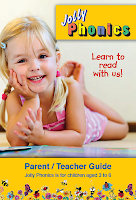Welcome back to everyone after midterm break. We’re
delighted to see the children back with happy faces and ready for lots of work!
We have a busy term ahead!
For the next fortnight we will be covering lots of new
things such as learning:
* New
sounds: ‘c’, ‘e’, ‘h’, and ‘r’.
* New
sight words: Look, at, the, my, look, I, am, like
* How to
write the letter ‘a’
* Number
2
We are starting to learn all about animals.
For the next fortnight we will be learning about animals that hibernate and
pets we can have.
Useful Vocabulary
Winter
Autumn hibernation hedgehog
squirrel nuts gathering food squirrel nest or ‘drey’ hedgehog
nest
Cat kitten dog
puppy rabbit hamster
guinea pig
bird goldfish snake turtle tank
aquarium cage hutch
bed bowl lead
collar
|
Some rhymes to
practice at home:
|
|
Mary had a little
lamb
|
Little Bo Peep
|
Hickety Pickety
|
I have a pet (Super
simple songs available on youtube)
|
How you can support
your child’s learning:
Literacy:
* Find
things around the house/ in books that start with our ‘s’,’a’, ‘t’, ‘i’, ‘p’
and ‘n’ sounds as well as our new
sounds ‘c’ ‘e’ ‘h’
and ‘r’.
* Cut
out pictures from magazines/ brochures/ leaflet with this sound
* Look
for this sound in the environment (on signs, in books)
* Encourage
your child to practice writing their name and the letter ‘c’ at home
Numeracy:
* Practice
counting to 5
* Find
things that are pink and orange
* Find
2D shapes in the environment: circles, squares, triangles, rectangles
* Encourage
your child to do sorting and matching activities at home: using pasta, toy
cars, toy blocks, or socks!
S.E.S.E.
* Talk
to your child about winter and
hibernation: what is hibernation? What animals hibernate? Why do animals
hibernate? Look for signs of hibernation (squirrels collecting nuts)
* Maybe
you could help hibernating animals at home: visit http://www.dspca.ie/ to find out how you can help hedgehogs at
home
* Talk
to your child about animals we keep as pets. Talk about the different ways we
have to care for our pets (food, bed, play time, walks, bringing to the vet).
* If
you have a pet bring in a photo to show the class!
|
Reminders:
Ø Please return homework folders and nursery rhyme kits each
day.
Ø If your child is absent please ring the office so we can
record any explanations.
Ø Encourage your child to put on and take off their coat
independently- this is an important skill to be learnt as the weather begins to
get colder!






